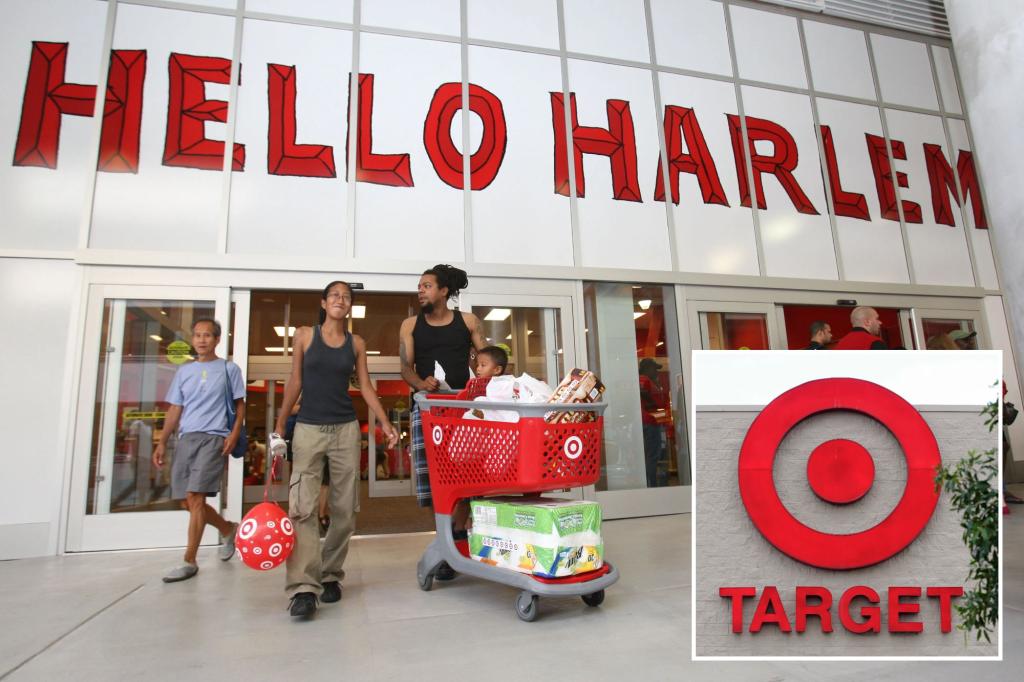In a dramatic move signifying the escalating concern over rampant crime in major American cities, retail giant Target is exiting East Harlem and eight other locations due to a surge in theft and violence. The Minneapolis-based company, which launched its East Harlem store in 2010 as a part of a neighborhood revitalization plan, announced the closure of all nine stores on October 21st.
TARGET STORE CLOSURES: Target announced it is closing nine stores in four U.S. states because of mounting thefts and organized retail crime threatening the safety of its workers and shoppers. pic.twitter.com/lmaIgJglvy
— CBS Evening News (@CBSEveningNews) September 26, 2023
“These stores must shut down because theft and organized retail crime have threatened the safety of our teams and guests, and such crimes contribute to unsustainable business performance,” the company revealed in a recent statement. The other stores to be closed are located in San Francisco, Seattle, and Portland, Ore. Cities well-known for their progressive prosecutors who, despite the rise in organized retail theft since the pandemic, refuse to pursue shoplifters.
Data analyzed by The Post from the NYPD complaint archive reveals a more than 40% surge in shoplifting complaints at the East River Plaza retail complex—which hosts Costco and Marshalls—since the pandemic. The thresholds of tolerance are breached as increased crime hits the company’s bottom line and puts employees’ safety on the line.
Despite attempts to mitigate shoplifting with an increased number of security guards and theft deterrent tools, the crime rates persist. Target even stepped up its efforts by training its personnel to de-escalate potential safety issues and lobbying for stronger theft prevention measures at the national level.
The closures have not gone unnoticed. Melissa Mark Viverito, Former City Council Speaker, voiced her concerns, “The closure is a problem. Target has been a neighborhood staple for years. Losing it means losing jobs and losing products at a price point critical to the community.”
As yet, Target has not disclosed how many workers from the East Harlem location will be laid off or whether they will be re-positioned at a different location.
Since its opening, the East Harlem store had been a beacon of transformative retail strategy, largely avoiding backlash by embedding itself within the community through efforts like charitable donations and showcasing merchandise designed by local artists. This closure draws a disappointing end to a model campaign.
But all is not lost. In fact, Target is planning to move into a new development at 121 W. 125th Street in Harlem. However, as concerns over rampant crime persist, the question remains whether this venture will meet a similar fate to its sibling in East Harlem.
This alarming underline to the retail sector points to an urgent need to tackle crime rates in major cities. The wave of closures by retailers such as Target and Rite Aid, which is potentially closing up to 500 of its stores after filing for bankruptcy protection, signifies a dangerous trend. If cities cannot provide a safe environment for businesses to function, the fear is these closures are just the beginning of a domino effect of desertion.
An insidious cycle of crime driving out business, leading to loss of jobs, feeds into the crime rates in the first place. Cities risk spiraling into a vicious loop unless they act on this crime pandemic with targeted measures and not just progressive policies.
Target’s exit should serve as a wake-up call for those at the helm—proving that inaction, or ineffective action, in response to rising crime is no longer an option. It is high time we value the safety of our communities over political leaning, for the cost of inaction is the community itself.













